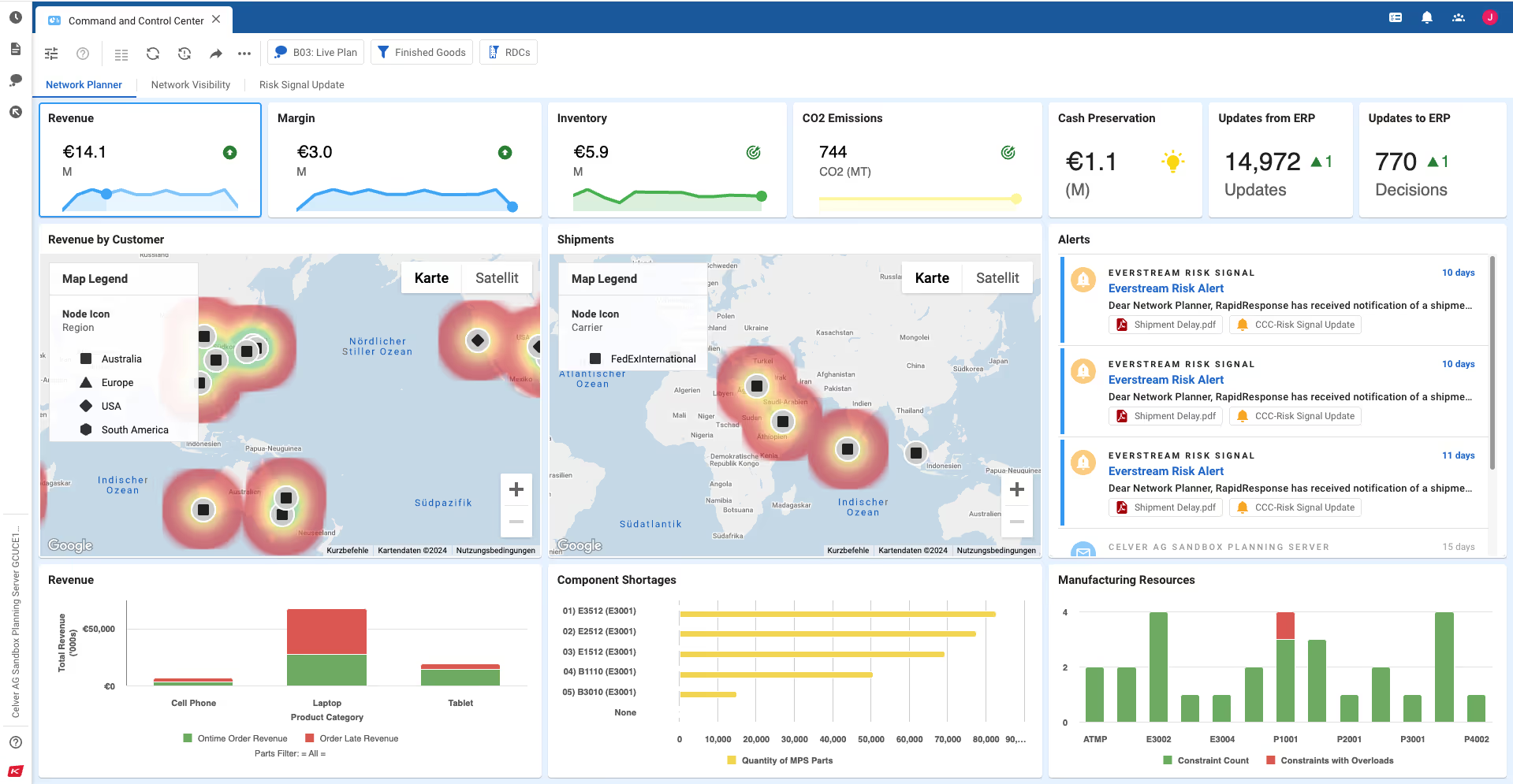Sales & Operations Planning (S&OP)

Balance between supply and demand
Sales and operations planning (S&OP) is the central process that helps to find the balance between supply and demand while achieving a company's financial and operational goals.
If supply and demand are out of balance, there will either be excess stock, as available products are not purchased, or customers will migrate, as requested products are not available. Both have a direct impact on the company's profitability and financial strength - not to mention possible recourse claims.
Added value of a comprehensive S&OP process
An efficient, cross-divisional S&OP process offers many advantages in this context:
- Fasterresponse to market changes: Changes are recognized earlier and the integrated process enables a faster, coordinated response. The effect of risks on the company can thus be mitigated.
- Improvedcommunication and collaboration: Cross-departmental communication and collaboration, e.g. between sales, marketing, production and purchasing, is intensified and, above all, operationalized. Silo thinking is overcome and a common understanding of the company's goals is achieved.
- Optimizedinventory management: Companies are supported in optimizing their inventories by reducing safety stocks, lowering storage costs and increasing product availability at the same time.
- Improvedcapacity planning: Better utilization of production capacities and resources is made possible by linking production planning more closely to market demand and identifying potential bottlenecks or overcapacities at an early stage.
- Supportfor decision-making: S&OP provides the basis for analyses and flexible simulations for decision-making at all levels of the company, from management to operational teams.
Rapid success through S&OP reference process
Our SCM experts will be happy to support you in creating the basis for an efficient, future-proof supply chain with optimized processes. Our proven S&OP reference process and tried-and-tested best-practice templates ensure your rapid success. Our tip: Start with our S&OP Boost Camp to get started right away!



Our services for you
S&OP Assessment
S&OP reference process
Data integration
The availability and quality of data are critical for accurate forecasting and decision-making in the S&OP process. Usually, the data is located in the underlying ERP system of a company. The problem, however, is that additional sources always have to be connected, be it other central systems or other ERP systems of national companies or even suppliers or customers, in order to achieve the highest possible level of integration, even beyond the company itself. With our colleagues from the Data Engineering team, there are no technical limits to what we can do. As long as data is available digitally, we can get it integrated and harmonized.
Our services for you
Supply Chain Planning & Simulation
Recent years have shown how complex and vulnerable supply chains are - especially when disruptions suddenly occur. See how you can make the right decisions quickly with the help of multidimensional planning and simulation using concrete examples in our 5-minute demo:
Contact







.avif)